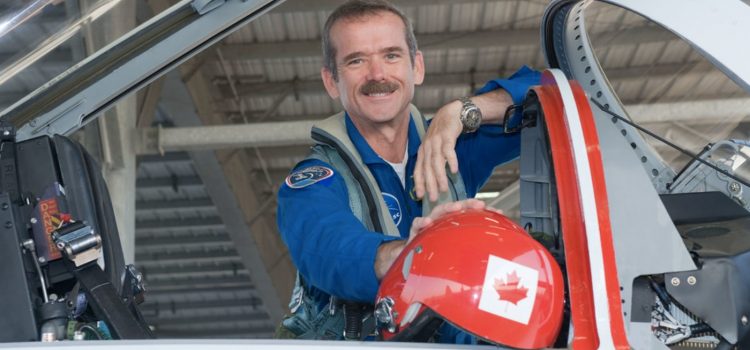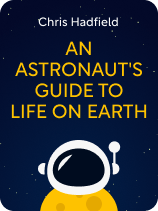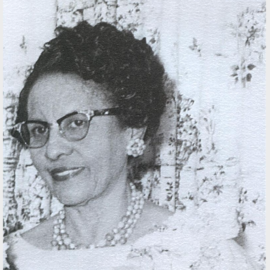

This article is an excerpt from the Shortform book guide to "An Astronaut's Guide to Life on Earth" by Chris Hadfield. Shortform has the world's best summaries and analyses of books you should be reading.
Like this article? Sign up for a free trial here.
What are the best Chris Hadfield quotes from An Astronaut’s Guide to Life on Earth? What can we learn about life and happiness from these quotes?
In An Astronaut’s Guide to Life on Earth, retired astronaut Chris Hadfield shares the insights he gained as an astronaut. These lessons will help readers improve their life by valuing the small moments and celebrating others.
Here are the most motivational Chris Hadfield quotes with explanations.
An Astronaut’s Guide to Life on Earth Quotes
What can you learn about life on our planet by leaving Earth? Retired astronaut Chris Hadfield explores this question in his memoir, An Astronaut’s Guide to Life on Earth. Hadfield recounts his years as an astronaut and reflects on valuable life lessons he learned while on the job. He says that while he was up in space, he learned how to live a better life on Earth—and by adopting the perspective and behavior of an astronaut, you can also improve your life.
Below we’ll look at three Chris Hadfield quotes from An Astronaut’s Guide to Life on Earth to get you inspired.
“If you start thinking that only your biggest and shiniest moments count, you’re setting yourself up to feel like a failure most of the time.”
Hadfield argues that you’ll live a more satisfying life if you find joy in everyday moments, rather than relying on large milestones and achievements for fulfillment.
Hadfield claims that it’s important to derive joy from small, everyday moments because large milestones and achievements are often few and far between. If you rely on large milestones to provide you with satisfaction, you’ll be unfulfilled for the majority of the time. On the other hand, if you learn to enjoy the time between these infrequent milestones, you’ll find life more satisfying. For instance, Hadfield spent 21 years as an astronaut, but he only spent a total of about six months in space. He says that he enjoyed all 21 years of his career because he didn’t only relish his time in space—he also delighted in the daily work of being an earthbound astronaut.
Large milestones are not only infrequent—they also might not happen at all. Accidents and other unexpected circumstances can rob you of these opportunities. Therefore, Hadfield argues that you shouldn’t expect to achieve your milestones—instead, think of achieving a milestone as an added perk. He adopted this mindset early on in his career because he knew that unexpected changes (such as a reduction in funding for the space program) could mean he wouldn’t go to space. He didn’t want to expect to reach the milestone of going into space, only to be devastated by the news that he couldn’t go.
“Anticipating problems and figuring out how to solve them is actually the opposite of worrying: it’s productive.”
Hadfield argues that any time you’re beginning a new experience, you should anticipate the worst possible outcomes and plan how you’ll handle them. He learned this lesson from undergoing hours of on-Earth astronaut preparation in which trainers ran him and his colleagues through life-threatening simulations, such as how to handle a system failure on the space station.
Hadfield claims that when you plan for the worst possible outcomes, you’re more effective under pressure. Any time you plan for and practice solutions to negative scenarios in advance, these solutions embed themselves in your mind. If disaster strikes (such as the temporary blindness incident), you’ll easily remember your plans, which will help you feel prepared and calm under pressure. For example, Hadfield found that hours of on-Earth training for handling fires aboard the ISS prepared him and his team to respond calmly and methodically when multiple fire alarms went off.
“It’s not enough to shelve your own competitive streak. You have to try, consciously, to help others succeed.”
Hadfield says you’ll be happier if you find fulfillment in supporting other people’s success. He offers three reasons why:
Reason 1: You’ll build closer relationships. When you’re a team player rather than someone who fixates on advancing your own agenda, people will want to be around you and get to know you. (Shortform note: Longitudinal psychology research on happiness supports Hadfield’s belief that closer relationships contribute to your happiness. Many of these same studies also suggest that people with strong relationships live longer, healthier lives.)
Reason 2: You’ll be more successful. Most efforts in life and work are team efforts, and you and your team will thrive if you’re collaborating rather than competing.
(Shortform note: While Hadfield suggests that a lack of competition is healthy for a team dynamic, some experts argue that healthy competition can support team efforts—specifically, it can improve creativity. Competition is healthy when the end goal is supporting the team effort, rather than creating a hierarchy of superiority within the team. Team leaders can foster healthy competition by holding brainstorming contests (such as offering an incentive for whoever comes up with the most effective solution to a problem) and by initiating lighthearted, competitive games.)
Reason 3: You can’t always be in the spotlight. You won’t always be the one assigned to lead important endeavors. It’s best to support others who are in the spotlight rather than attempt to steal the spotlight when it’s not your turn.

———End of Preview———
Like what you just read? Read the rest of the world's best book summary and analysis of Chris Hadfield's "An Astronaut's Guide to Life on Earth" at Shortform.
Here's what you'll find in our full An Astronaut's Guide to Life on Earth summary:
- Chris Hadfield's experience of becoming an astronaut
- The five life lessons Hadfield learned in his role as an astronaut
- Why you should find joy in everyday life rather than looking forward to milestones






